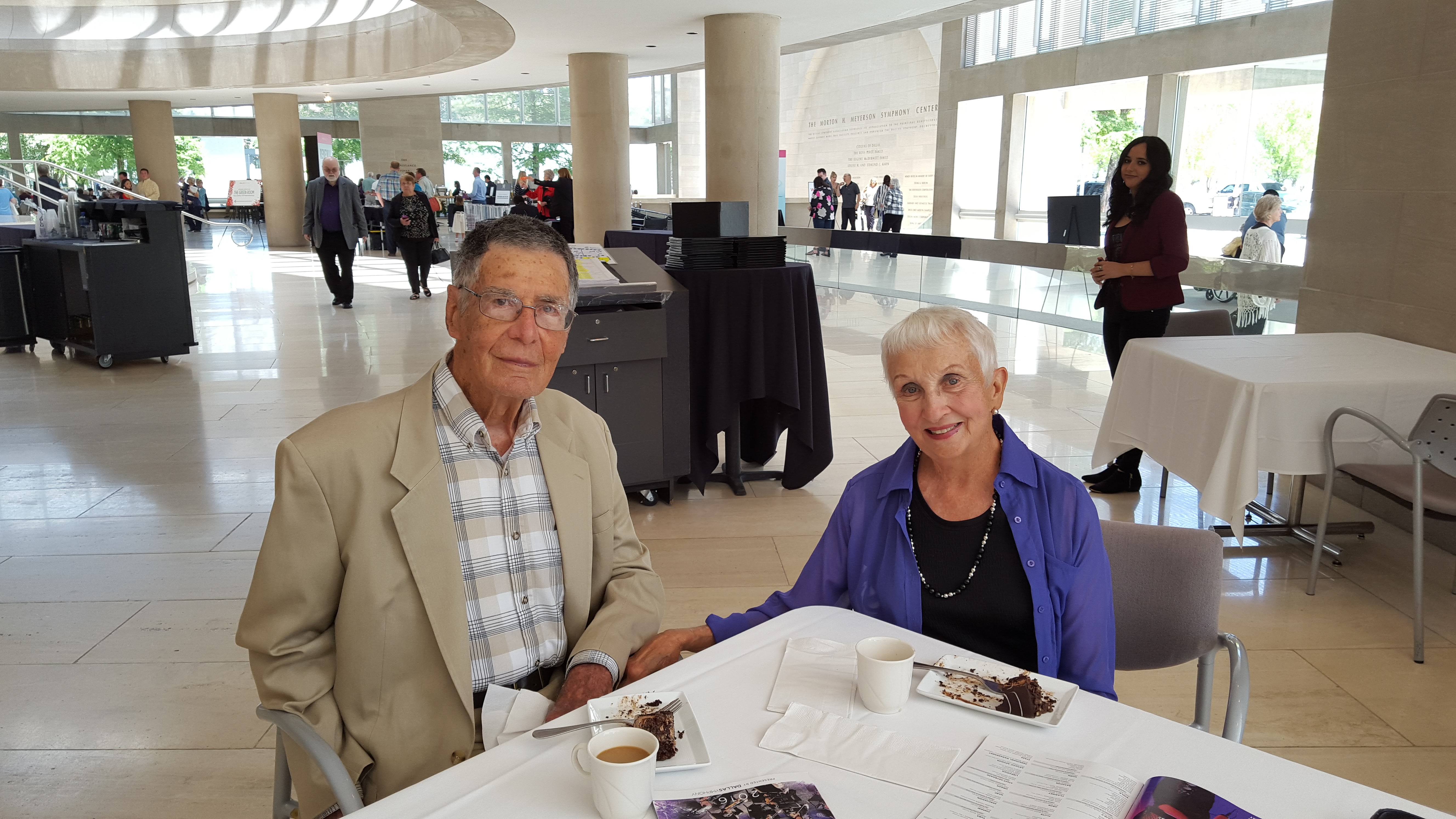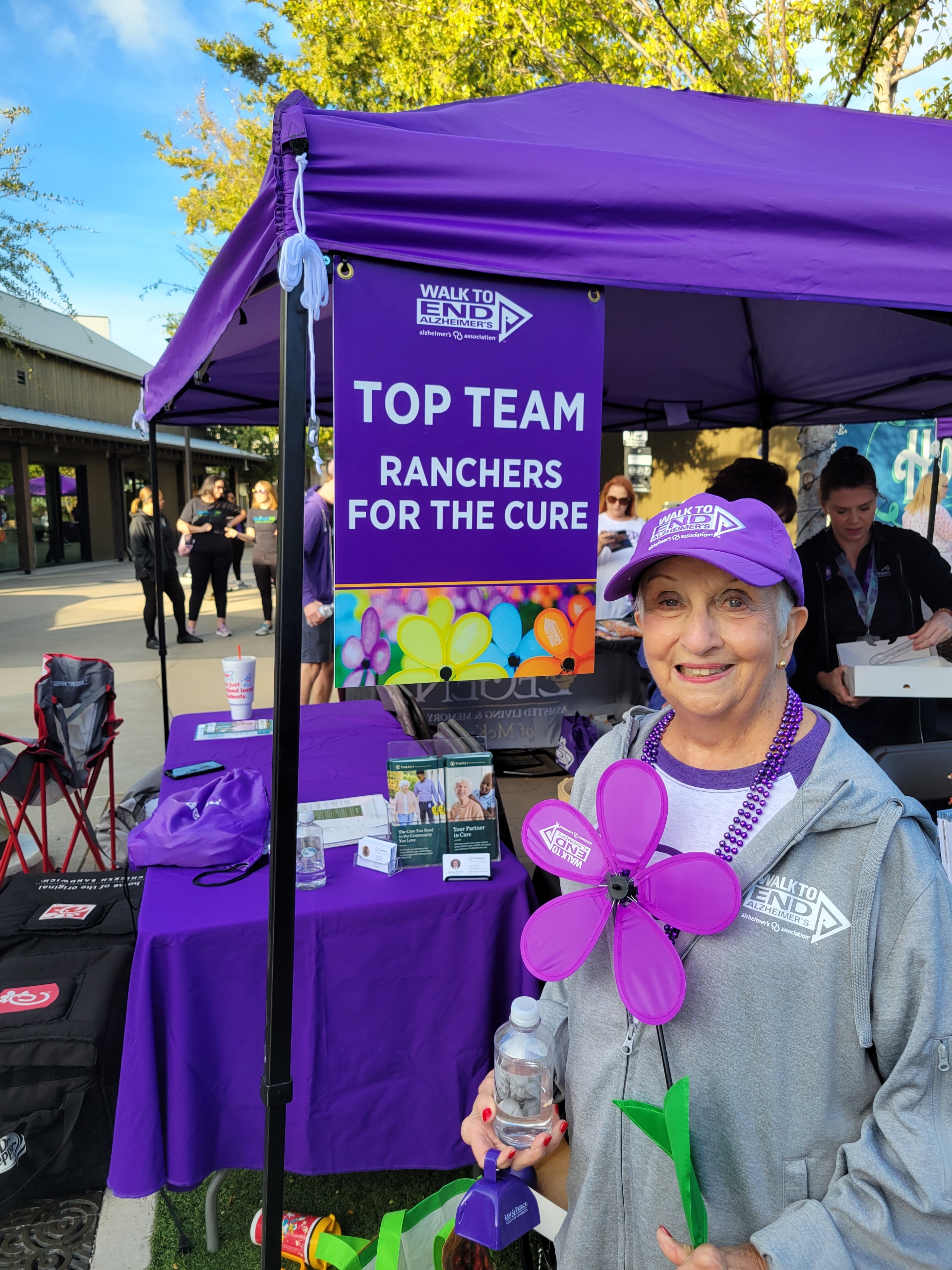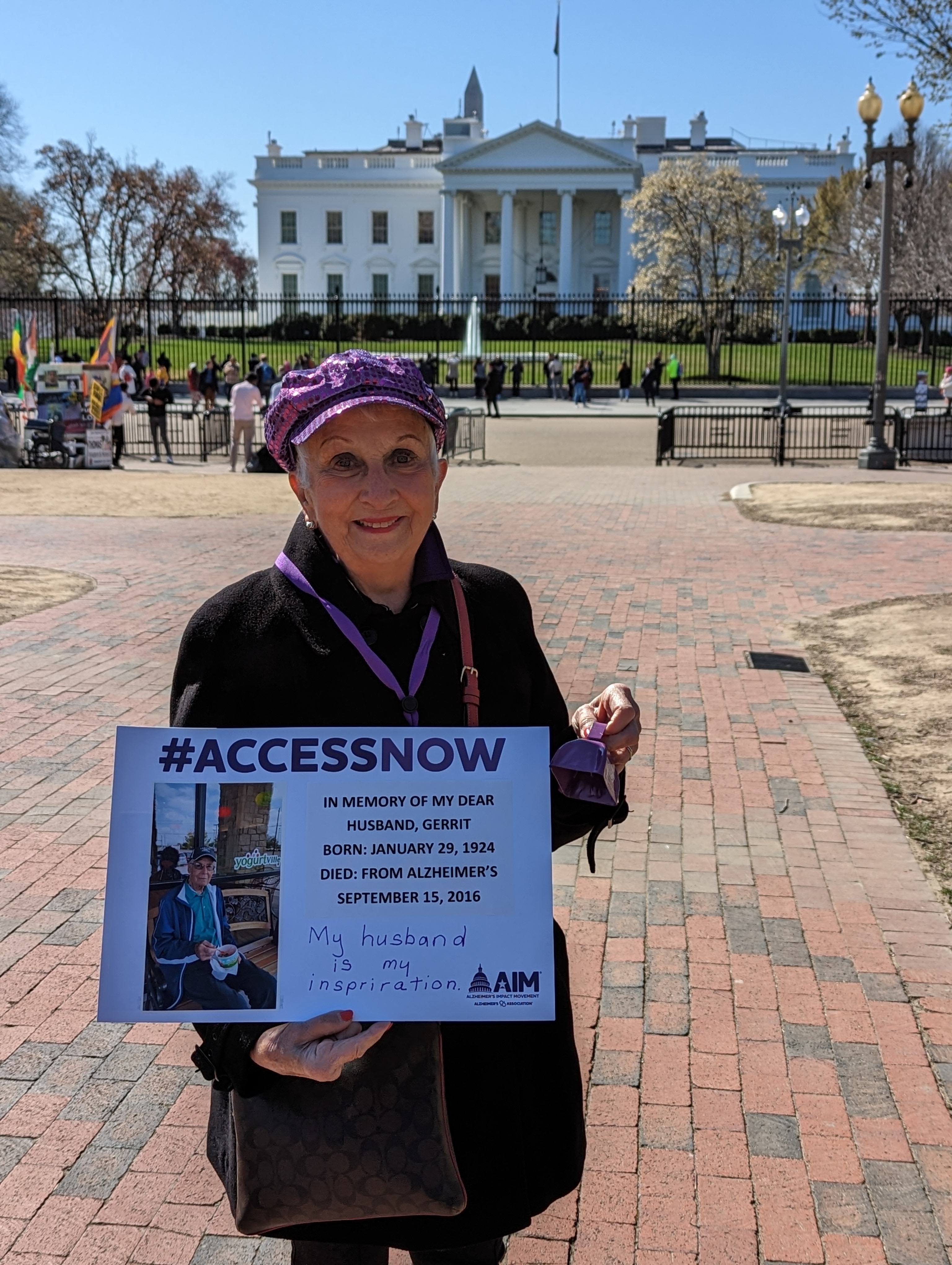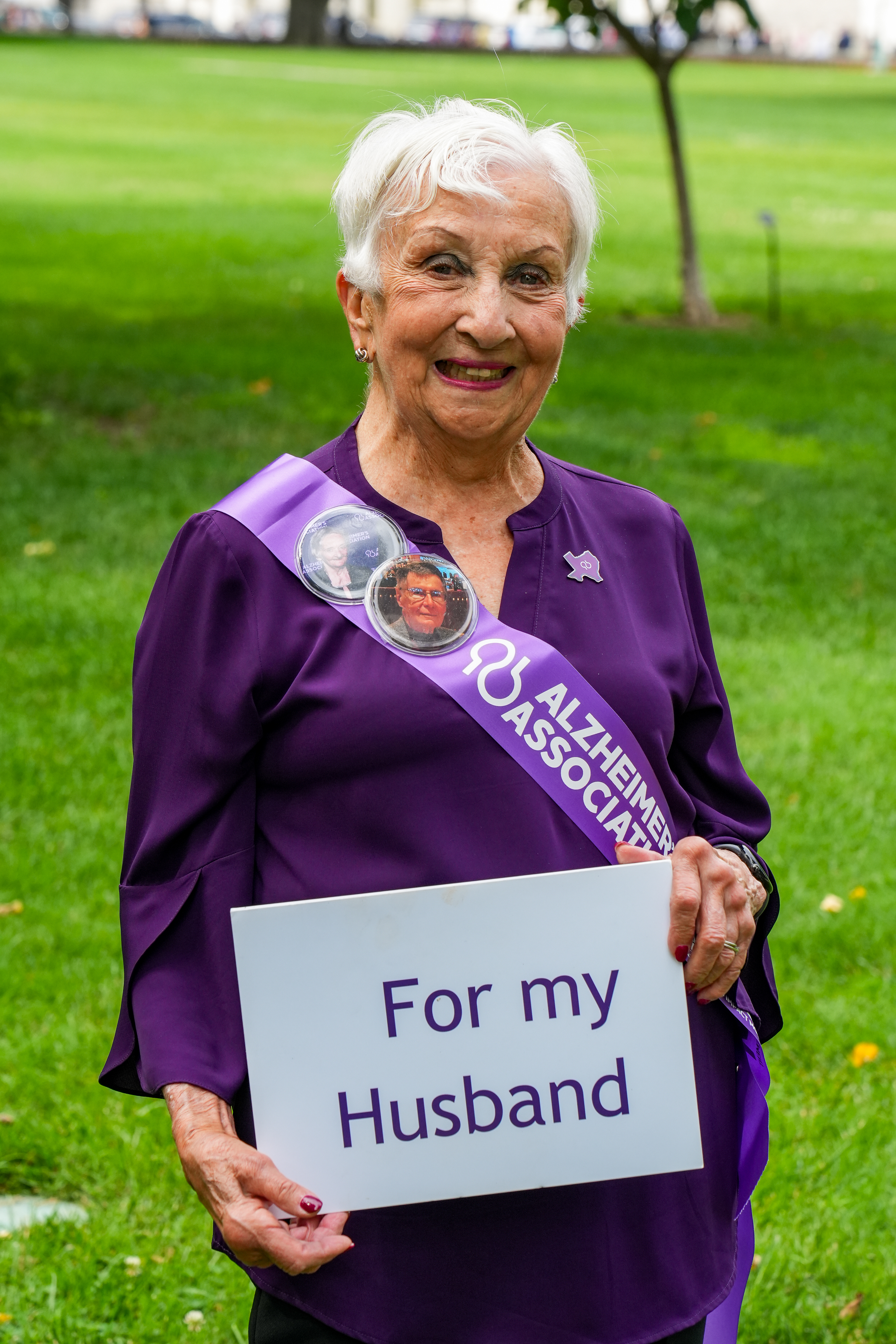Each month, we’re featuring an advocate who engages with policymakers to ensure priorities that improve the lives of people impacted by Alzheimer’s and all other dementia remain top-of-mind in Congress.
For Joan van Vliet, the fight against Alzheimer’s is deeply personal. Her journey began with love — a love story that spanned over five decades and four continents. Joan met her husband Gerrit in Venezuela in 1960, where she was teaching and he was working as an engineer. She asked him to teach her how to sail, and they married four years later and built a life together first in Venezuela, and then in Iran, Curacao, and eventually Texas.
“Gerrit spoke seven languages altogether,” said Joan. “In the end, he could not speak any.”
They began seeing symptoms of Alzheimer’s while on a trip to visit family in the Netherlands in 2011, but both hoped it was the stress and exhaustion of travel. During their trip, they visited a friend who was living in a memory care facility with Alzheimer’s.
“He did not recognize us until my husband started to sing a little song and clap his hands, and then he kind of came to life — through the music and language,” said Joan. “And then when it stopped, he was just gone again. I remember saying at that time, ‘Oh, I hope we never have to deal with this.’”
When they returned home to Texas, Gerrit’s nephew, who didn’t speak any Dutch, visited them from Australia. Gerrit spoke only Dutch to him over the entire time of his visit.
“I could not understand this. I knew there was something wrong,” said Joan. Shortly after, Gerrit was diagnosed with Alzheimer’s.
“In those days, and it wasn’t so long ago, the doctor didn’t even say convincingly that it was Alzheimer’s,” said Joan. “He said, ‘Well, it’s Alzheimer’s. But you won’t know until he passes and you have an autopsy.’”
During her years caring for Gerrit, Joan learned to navigate the challenges of the disease with grace and a sense of humor.
“He’d always want to clean up the dishes for me on his good days,” said Joan. “One day, he said he wanted to try…Well he had soap all over the counters, all over everything, and I could only say, ‘What a wonderful job you did! Everything is so clean!’ It was charming really. The love we had for each other was just as strong at the end as it was for all those 52 years.”

Joan cared for Gerrit at home until the final weeks of his life. “I never felt he was not the man I married,” she said. “I always looked right in his hazel eyes, and I saw his heart and himself. I thought, ‘Yes, on the outside he’s different, but he’s still that same man that I married 52 years ago.’ It kept me going.”
During the last nine months of her caregiving journey, Joan began journaling to cope with the emotional toll. “I decided I have to do something. I have to get help. And I also have to help myself a little bit more, because it is such an excruciating experience,” Joan said.
“When my husband passed in 2016, I remember saying as he took his last breath, “I will spend the rest of my life helping people with this terrible disease.’ That’s the way I felt then, and I feel just as committed right now,” said Joan.
Shortly after Gerrit passed away, Joan agreed to help with a local Alzheimer’s Association caregiver support group. Joan has now leads multiple caregiver support groups in her community, participates in the Walk to End Alzheimer’s, and advocates for policies that advance dementia care and research.

“Before I retired, I was an educator and a counselor,” said Joan. “When I look back, I think it was an act of God that I followed that path, because that made it easier for me to become a group leader for caregivers and do the other things that I do. I was a strong advocate for people in trouble who needed help. That was part of my life for a long, long time, and I didn’t realize where it was leading me.”
Joan’s commitment to the mission has been amplified by another personal connection to the disease. Her sister Barbara recently passed away from Alzheimer’s. “My sister held the blue flower on the stage several years ago when she was first diagnosed…It certainly reaffirmed my commitment that we have to do something.”

Her advocacy has taken her to Washington, D.C., for the AIM Advocacy Forum and to Austin for state advocacy days in Texas. Right now, she’s urging everyone she meets to vote YES on Proposition 14, which would fund the Dementia Prevention and Research Institute of Texas (DPRIT).
“When my husband was diagnosed, they couldn’t even diagnose him properly,” Joan said. “Now things are moving. Diagnosis is getting better, and we’ve come up with a treatment for those in the early stages of Alzheimer’s. Things are happening…this will move us closer to better treatments and hopefully the cure that we’re all after. I see [DPRIT] as a wonderful step forward.”
If approved by Texas voters on November 4, Proposition 14 would allocate $3 billion over 10 years to fund DPRIT, modeled after the successful Cancer Prevention and Research Institute of Texas. The initiative aims to make Texas a national leader in dementia research and innovation.
Joan sees the impact of dementia in her own community. “I live in an active adult community. All of us come here fit, but I have been here for 22 years. During that time, many of my friends here have struggled with memory loss and dementia,” she said. “I think having DPRIT will open up people to understand that something can be done, and they don’t have to suffer in silence.”
A proud Texan, Joan is excited to see her state taking action in the fight against dementia. “Maybe other states, if they see Texas as a model, they will also be able to develop something…but I certainly want to see it begin here.”
Joan’s story is one of enduring love, resilience, and purpose. “I still miss him. Sometimes I talk to him,” she said. “I do this work for the Alzheimer’s Association in his memory.”
Become an advocate today to join Joan in the fight against Alzheimer’s and other dementia.
Learn more about DPRIT and how Texas voters can pledge to vote YES on Proposition 14.
